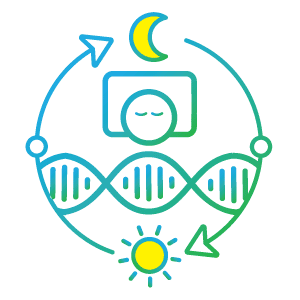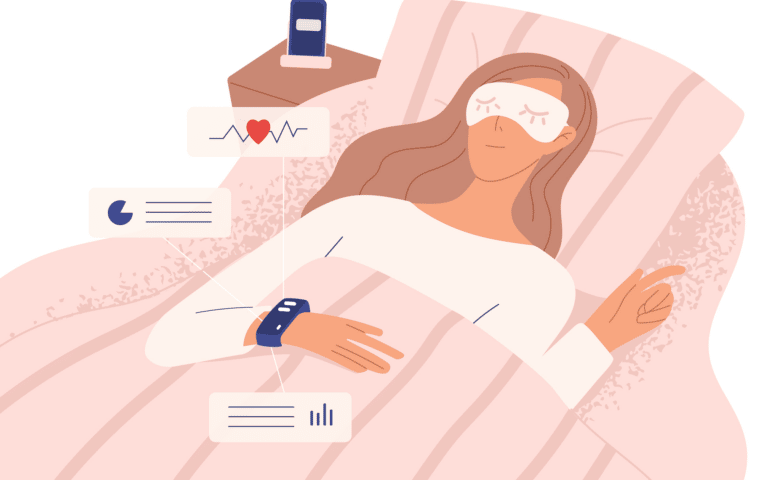Introduction to Our Research
Our collaborative research group investigates the biology of circadian rhythms, sleep disturbances and adverse pregnancy outcomes using unbiased human gene discovery approaches and focused mechanistic investigation to advance biology, diagnostics and therapeutics.
Circadian rhythms are ~24-hour cycles that regulate our daily cellular, hormonal and physiologic rhythms. Our “biological clock”, originates from an orchestration of cellular clocks and is influenced by external light, food and exercise cures, but varies between people. During the day, our bodies are most alert and metabolically active; these processes slow down at night when our bodies are preparing for sleep. In contrast, our “social clock” is defined by culture, social expectations, social obligations, etc. In modern day society, we do not strictly live by the light-dark cycle, many of our activities, such as work or social gatherings, happen at night. When the biological clock and social clock are in misalignment, adverse effects on sleep, health, and risks for diseases may occur.
Sleep disturbances chronically affect an estimated 50-70 million US adults and significantly impact chronic disease burden and all-cause mortality. Common sleep disorders include insomnia, sleep apnea and narcolepsy. Several dimensions of sleep, such as timing, duration and quality are variable in the population and heritable. Sleep deficiency, poor sleep and night shift work increase risk of cardiometabolic and neuropsychiatric disorders. Sleep disorders themselves pose a large public health and economic burden.
Adverse pregnancy outcomes preeclampsia and post-partum hemorrhage, have a genetic component but their etiology is poorly understood. Preeclampsia is a severe disorder that affects 5% of all pregnancies and is characterized by elevated blood pressure and increased urinary protein. Treatment options are limited. Post-partum hemorrhage is the leading cause of maternal mortality and morbidity. Improved preventative and therapeutic interventions based on underlying mechanisms have a great potential to positively impact public health.
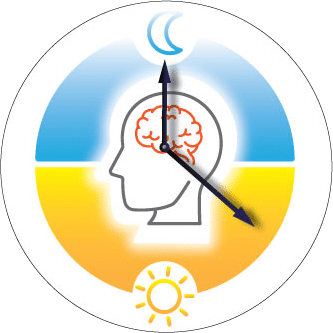
Circadian rhythms, our “biological clock”, are considered to be endogenous, meaning that they originate from within an individual and are consistent. The biological clock is governed by the light-dark cycle and responds to light cues; meaning that your body “knows” when it is daytime versus night time. During the day, our bodies are most alert and metabolically active; these processes slow down at night when our bodies are preparing for sleep.
In contrast, our “social clock” is defined by culture, social expectations, social obligations, etc. In modern day society, we do not strictly live by the light-dark cycle, many of our activities, such as work or social gatherings, happen at night. When the biological clock and social clock are in misalignment, social jet lag occurs, adversely affecting our sleep, health, and risks for a variety of diseases.
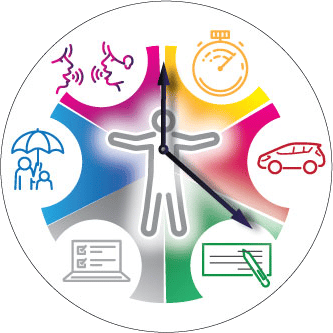
Our Research Focuses on Four Areas
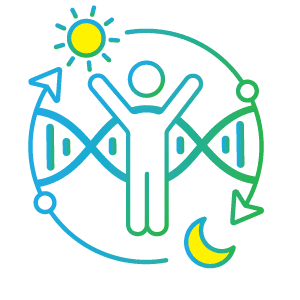

- What molecular pathways cause changes in daily biological rhythms such as morningness-eveningness preference?
- How does clock gene variation impact human physiology, behavior and disease?
- What genetic variation influences timing of gene expression?

- What maternal and fetal genetic factors cause preeclampsia?
- How does preeclampsia relate to cardiometabolic risk factors and outcomes?
- What genetic factors contribute to post-partum hemorrhage?
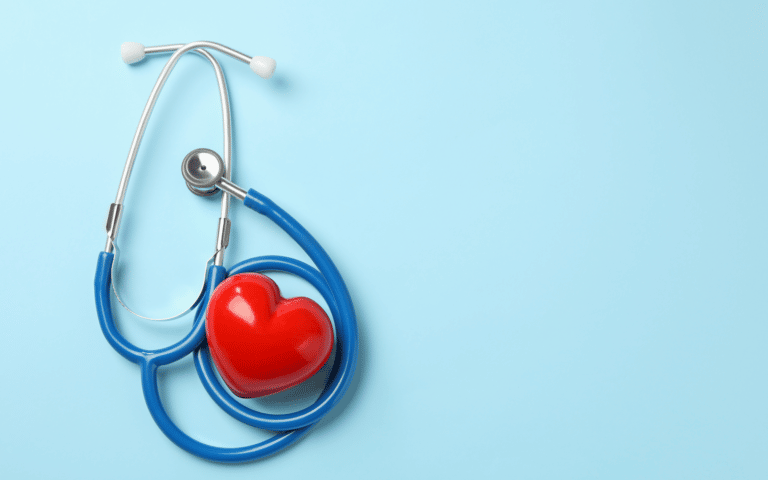
- Does sleep and circadian rhythm disruption cause, mark or result from chronic disease?
- What mechanisms connect sleep, circadian rhythms and disease?
- Do sleep or behavioral timing interventions prevent or ameliorate disease features?

